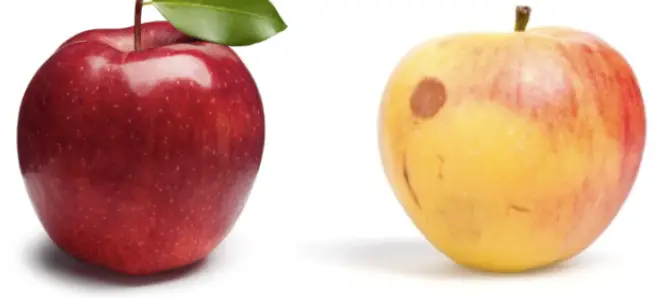
As the world stares down a potential food shortage caused in part by the COVID-19 crisis, it goes without saying that this spring will be an important one for food growers worldwide.
While the conventional way of thinking is that large monoculture crop farms are the best way to “feed the world,” according to the popular mission statements of agrochemical companies like Monsanto, few realize that the United Nations actually said in 2013 that small-scale, biodynamic, ie organic, agriculture is the best way to feed the world.
That recommendation came courtesy of its oft-overlooked report ‘Wake Up Before It’s Too Late,’ which also lauded organic farming for its contributions to preserving the climate.
Aside from healing the land, organic agriculture also has the potential to lessen the pesticide load in the bodies of those who consume it, especially when it comes to organic apples.
Organic Apples Far Cleaner Than Conventional, Latest Data Shows
According to a February 14 post from the non-profit GMO Free USA, which works to educate food consumers on the potentially harmful effects of genetically engineered crops and pesticides, conventional apples have far more pesticide residues than organic apples.
While many people continue to deny the benefits of organic for avoiding toxic, synthetic pesticides, the data doesn’t lie, according to the non-profit.
Conventional apples tested positive for 47 different pesticide residues, while organic only tested positive for three pesticide residues, most likely due to contamination from neighboring conventional fields of crops.
“This one is for those who say there’s no difference between conventional and organic – they say both contain pesticides,” the post reads.
“Apples are a good place to start,” the organization continues.
“These statistics are from the most recent USDA testing of pesticides in apples.
“On average, organic apples contain less than one pesticide, while conventional apples have at least 4 different pesticides on a single apple.
Over 62% of organic apples contained no traces of pesticide contamination, which likely comes from conventional farmers’ pesticide pollution.
“Less than 1% of conventional apples contained no traces of pesticides.”
Making matters even worse for those who eat only conventional apples: the potential toxicity of consuming multiple pesticides together, which could have synergistic, long term negative effects.
According to GMO Free USA, multiple pesticides, when consumed together, have been found to be more toxic than when consumed individually.
These pesticides are harder to avoid in the United States, where pesticide use has skyrocketed since the introduction of GMOs in the mid-90s, culminating with recent research showing that United States farmland is now 50% more toxic to bees since these lab created crops were first introduced.
One Final Reason to Avoid Non-Organic Apples: GMOs
In addition to avoiding pesticides, eating organic apples will also ensure that you don’t eat the new GMO “Arctic” apple, which was created by a Canadian company named Okanagan Specialty Fruits.
 These lab-spliced GMO apples turn off an enzyme responsible for the “browning” of apples, meaning they could be expired and the consumer wouldn’t even know it.
These lab-spliced GMO apples turn off an enzyme responsible for the “browning” of apples, meaning they could be expired and the consumer wouldn’t even know it.
“The result is a longer shelf life and an apple that tastes and looks better, which means less food waste from harvest to consumption,” the company states on its website.
But consumer groups like GMO Free USA aren’t so sure these GMO apples are even needed, considering that farmers have already successfully bred and grown the same style of apples in the field without the use of genetic engineering.
The apples haven’t been tested for long term safety effects, meaning that anyone who consumes them is the guinea pig, and it’s all in the name of profit, critics say, as the GMO non-browning apples may be sold at restaurants or cafes without the consumer even knowing, as there is no GMO labeling currently.
The non-profit also shared how to avoid the apples in its most recent post, reminding consumers that there has perhaps never been a more important time to buy and grow organic.
“And one last thing… if you should see a sticker on an apple that says “Arctic” apple. That would be a GMO apple, engineered so it doesn’t turn brown when it rots.
“Eat healthy, avoid pesticides, be well,” the non-profit concluded.
Thanks for reading! You can learn more by checking out the GMO Free USA Facebook page by clicking on this link.
Related Reading: The Top Five Pesticide Soaked Fruits and Vegetables to Avoid At All Costs
Thanks for installing the Bottom of every post plugin by Corey Salzano. Contact me if you need custom WordPress plugins or website design.




